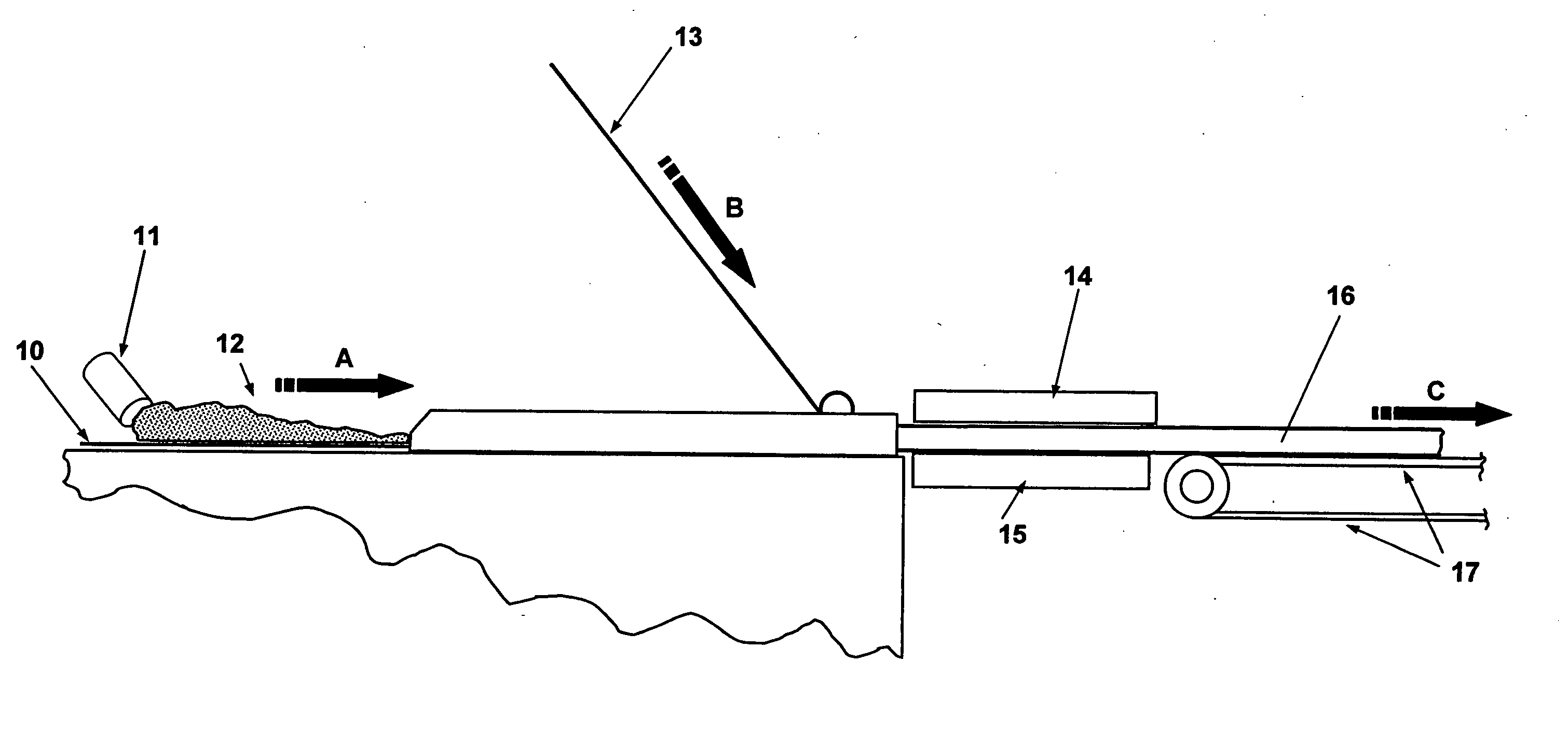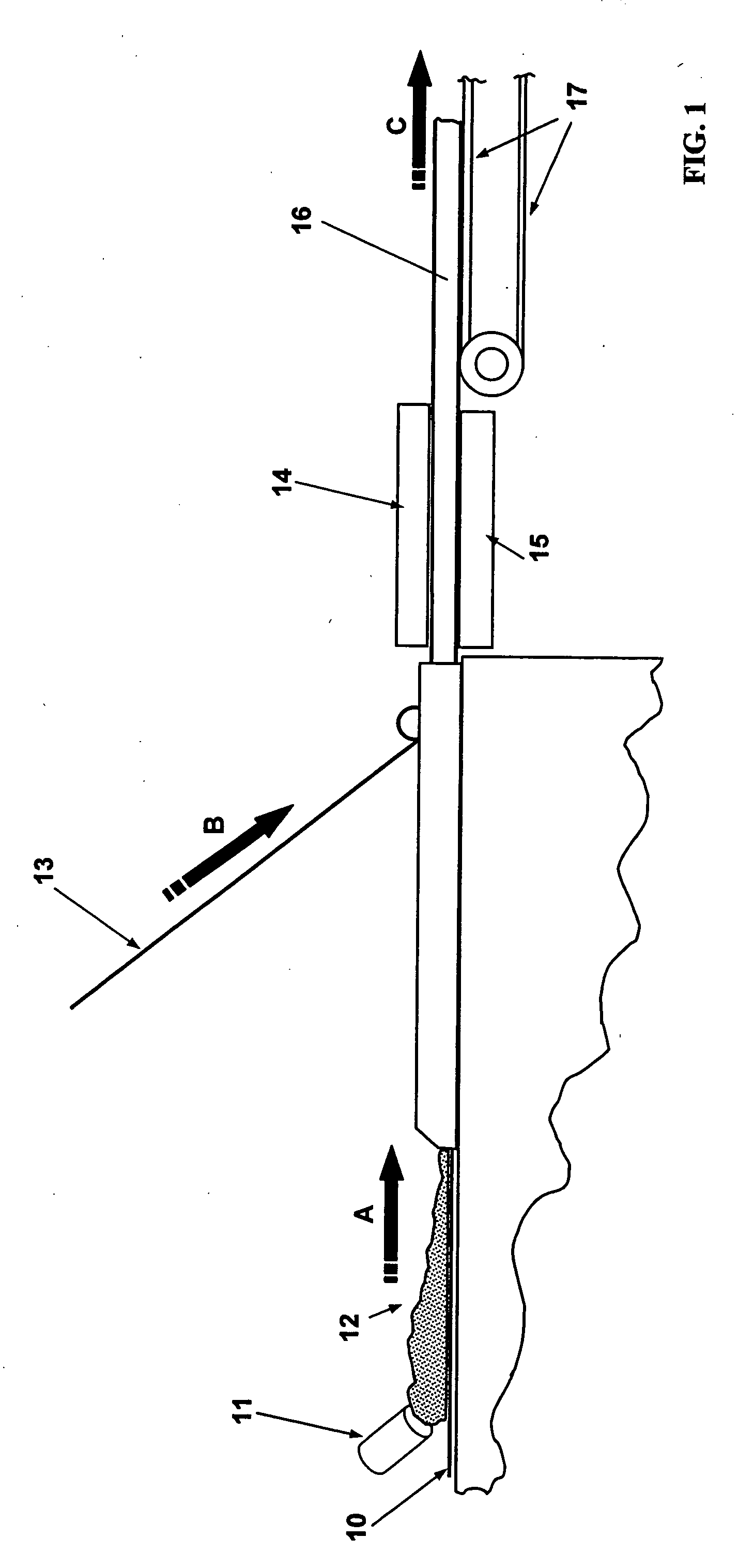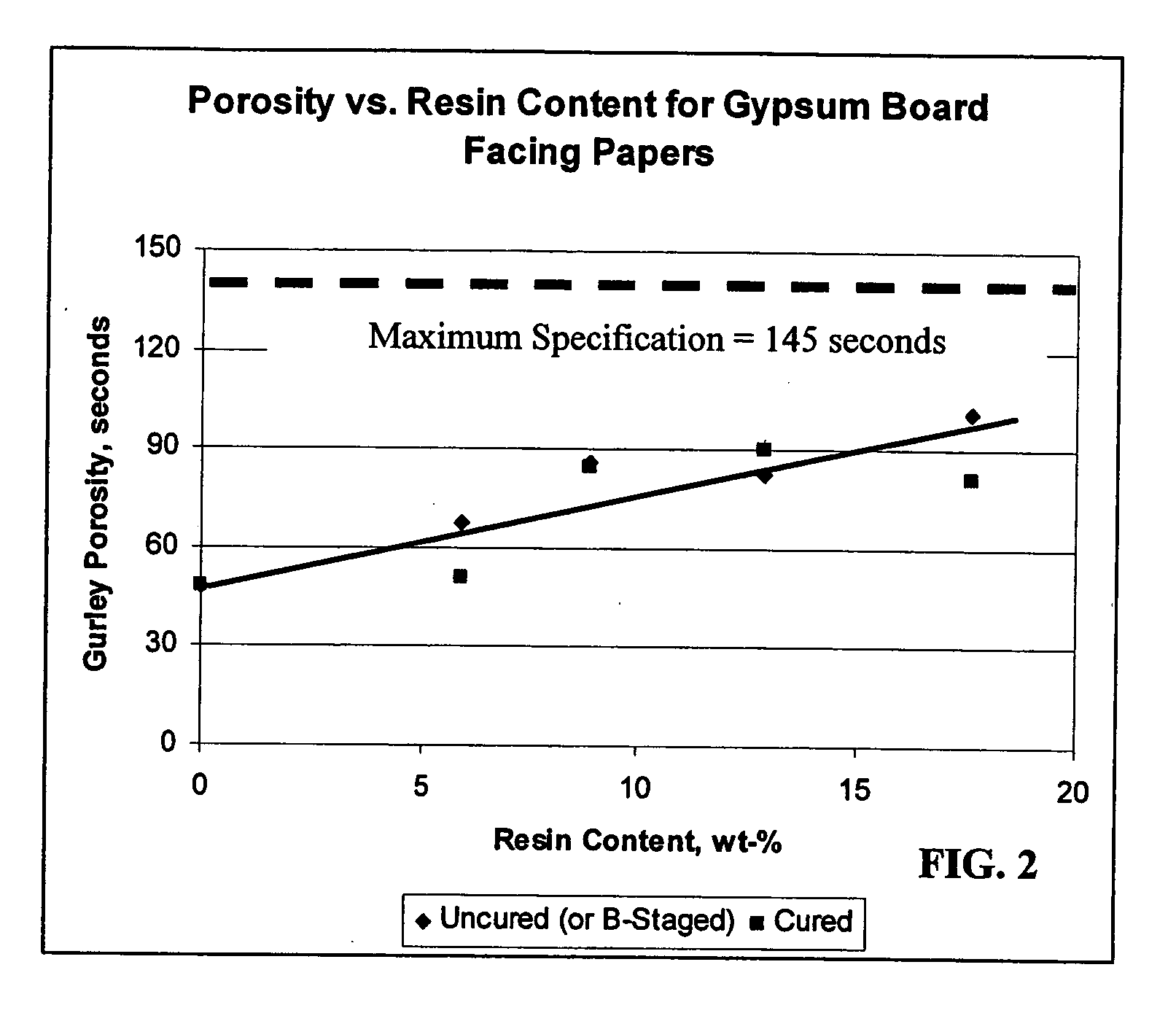Mold- and moisture-resistant gypsum boards
a technology of gypsum and gypsum, which is applied in the field of mold- and/or moisture-resistant gypsum boards, can solve the problems of increasing concern for mold growth, insufficient water resistance of conventional gypsum facing paper, and inability to meet the needs of construction, so as to improve mold- and/or moisture resistance, improve fire resistance, and improve the effect of moisture resistan
- Summary
- Abstract
- Description
- Claims
- Application Information
AI Technical Summary
Benefits of technology
Problems solved by technology
Method used
Image
Examples
examples
[0063] Samples of conventional facing paper used for gypsum board were impregnated with differing amounts of a solvent-borne, heat reactive phenolic resin. After air drying overnight to yield uncured or “B-staged” paper, the resin content of the samples was measured at 5.9%, 8.9%, 12.9%, and 17.6% by weight. Some of the papers at each of these levels of resin treating were then cured at 360° F. (180° C.). All paper handsheets were equilibrated at constant humidity and temperature prior to testing.
[0064] Conventional untreated facing paper, B-staged facing paper, and cured facing paper were then analyzed to determine the suitability of B-staged, resin-impregnated facing paper for use in gypsum board production. That is, among other properties, the ability of the B-staged facing paper to allow vapor passage (relative to conventional untreated facing paper) for normal gypsum slurry drying, as well as the ability of the cured facing paper (after this drying step) to provide mold and mo...
PUM
| Property | Measurement | Unit |
|---|---|---|
| temperature | aaaaa | aaaaa |
| time | aaaaa | aaaaa |
| temperature | aaaaa | aaaaa |
Abstract
Description
Claims
Application Information
 Login to View More
Login to View More - R&D
- Intellectual Property
- Life Sciences
- Materials
- Tech Scout
- Unparalleled Data Quality
- Higher Quality Content
- 60% Fewer Hallucinations
Browse by: Latest US Patents, China's latest patents, Technical Efficacy Thesaurus, Application Domain, Technology Topic, Popular Technical Reports.
© 2025 PatSnap. All rights reserved.Legal|Privacy policy|Modern Slavery Act Transparency Statement|Sitemap|About US| Contact US: help@patsnap.com



